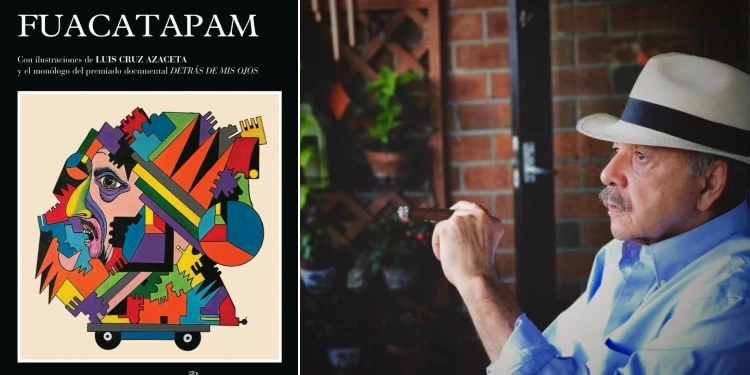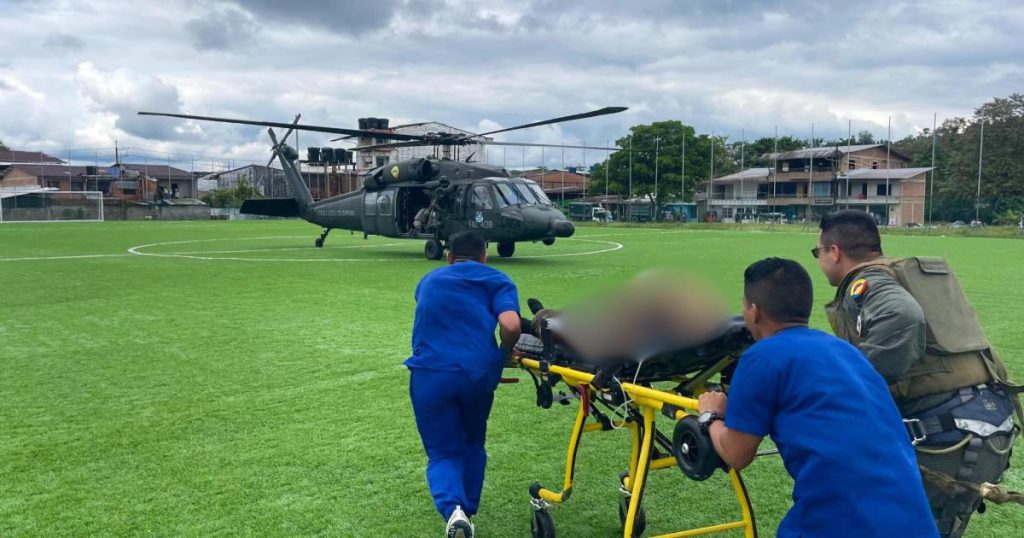SLP, Mexico.- The Cuban playwright, writer and film director Ivan Acostaauthor of The Superreleased the book Fuacatapampublished by the Fugas Collection and illustrated by the Cuban-American painter Luis Cruz Azaceta. The work will be presented this Thursday, January 23, at 6:00 pm, at the Otto G. Richter Bookstore, at the University of Miami.
The prominent filmmaker, exiled in New York Since 1961, it has brought its readers a collection of stories and other texts, which make up a “carnival of stories and genres,” according to Luis Leonel León, director of the Fugas Collection.
Fuacatapama hybrid work, “is a journey through the history of post-revolutionary Cuba, which sometimes reminds us of the stories of magical realism in Black stories from Cubaby Lydia Cabrera”, reviewed the literary critic.
India Agrippina, accompanied by Don Liborio, travels through the Island in time and space to meet figures such as José Martí, General Antonio Maceo, Carlos Manuel de Céspedes, Gertrudis Gómez de Avellaneda, Cirilo Villaverde and Father Félix Varela, among others. .
“Walking through Central Park and down Eighth Street in Miami, you come across real and imagined characters and ghosts that Iván likes to talk to and others that he would never like to have seen. Feel the loneliness of a long-distance runner in an old terrain blooming with screams, applause, defeats, illusions, false heroes, forgetfulness, rebirths, hopes and despairs, tears and Cuban laughter, a lot of intensity, questions without answers and an uncertain goal, like almost all the goals of exile,” León highlighted.
Rolando Pérez, writer and professor emeritus at Hunter College, considered that the book “is made with all my heart.”
In the stories, India Agrippina – whose name recalls the famous young woman of the Roman Empire, sister of Caligula, wife of Claudius and mother of Nero – comes to be considered “anti-revolutionary” with the arrival of the Castro revolution.
Cuban heroes, a commander “chief of feces,” an old indigenous woman, and exile come together in the pages of Fuacatapamavailable in amazon.

“This presentation in Miami, as this is a new book and like most of my works, tries to be a celebration, a trip and an investigation into our culture, our history, exile, the island, the 20th century and the 21st century, my native Santiago de Cuba, my escape to Jamaica on a hijacked ship, the Twin Towers, the COVID 19 pandemic, Havana, Little Havana, my Hell’s Kitchen neighborhood in New York, the past, present and future, and many others things that we Cubans have lived and imagined for decades, always mixing the genres and feelings that identify me as an author and that are largely rooted in the arts and the life of the Cuban wherever he is,” Iván Acosta told The New Conservative.
Acosta fled the Island on a boat to Jamaica in August 1961 and arrived in New York on December 4, 1961.
Once in the United States he served in the army for six years, and studied film at New York University, Social Studies, Film Marketing and television production.
His theater piece The Superreleased on November 5, 1977 and made into a film in 1979, is the first work that addresses the problem of Cuban immigration in the 20th century in New York.
Iván Acosta, together with a group of Cuban artists and intellectuals, founded the Cuban Cultural Center of New York in 1972, and was its director for several years. He has written dozens of plays and created short and feature-length films.















